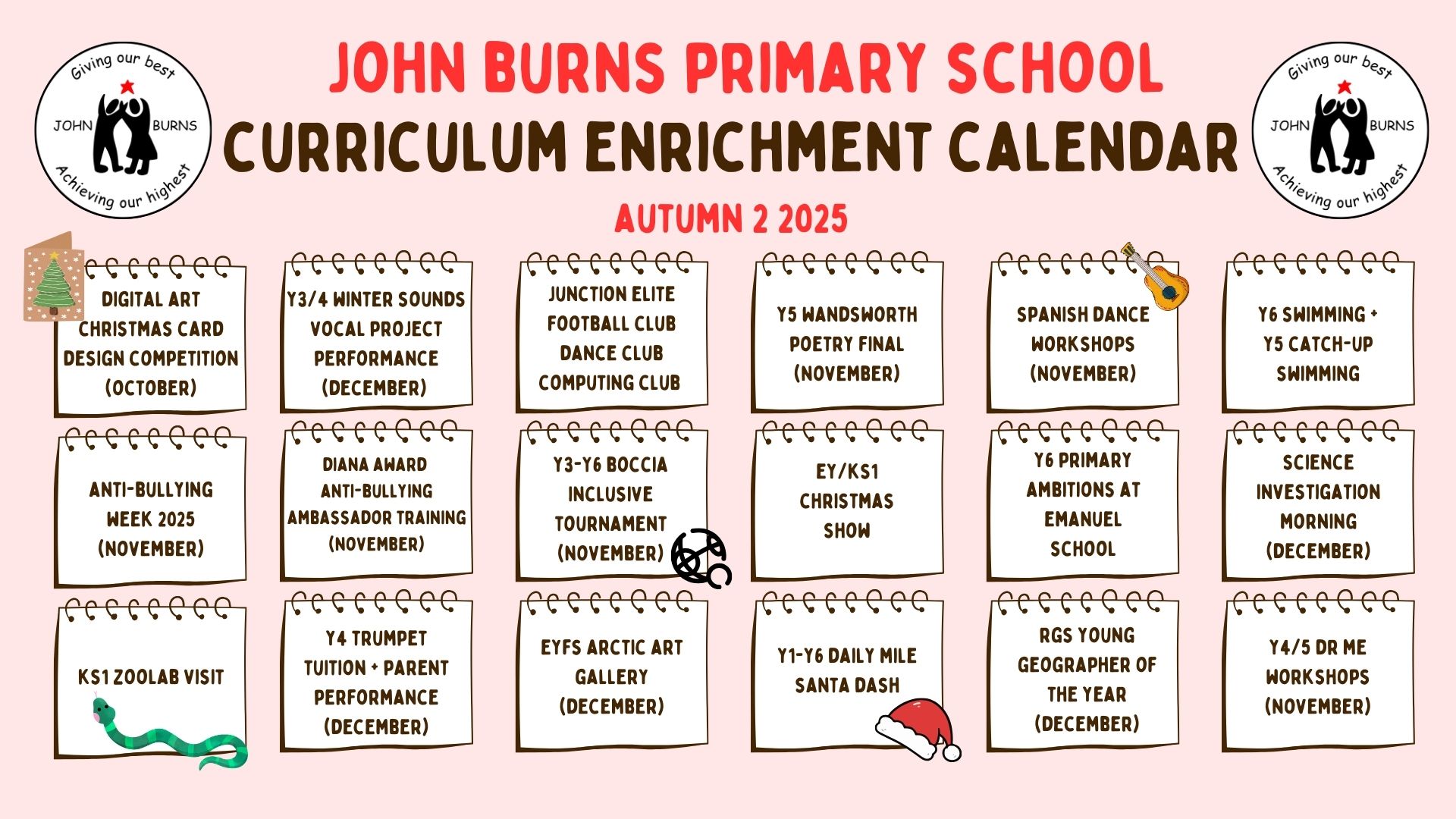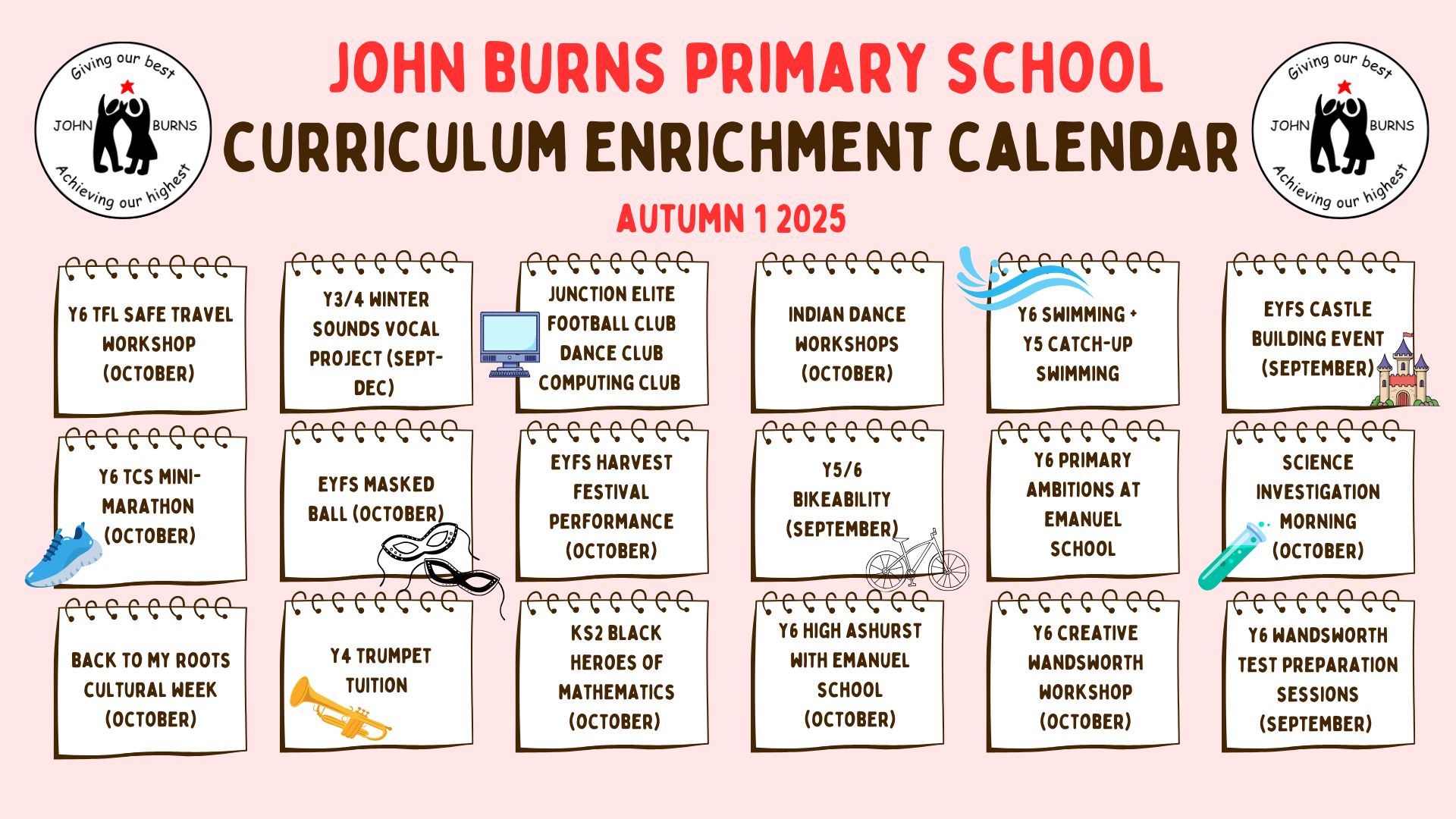

Welcome to our Curriculum Enrichment page.
At John Burns Primary School, we are proud to offer a rich and varied programme of curriculum enrichment opportunities that enhance and extend learning beyond the classroom. These experiences are carefully planned to support our curriculum, develop pupils’ talents, and inspire curiosity, confidence, and creativity.
Below, you will find our Curriculum Enrichment Calendar, which outlines the exciting opportunities available to our pupils throughout the academic year.



